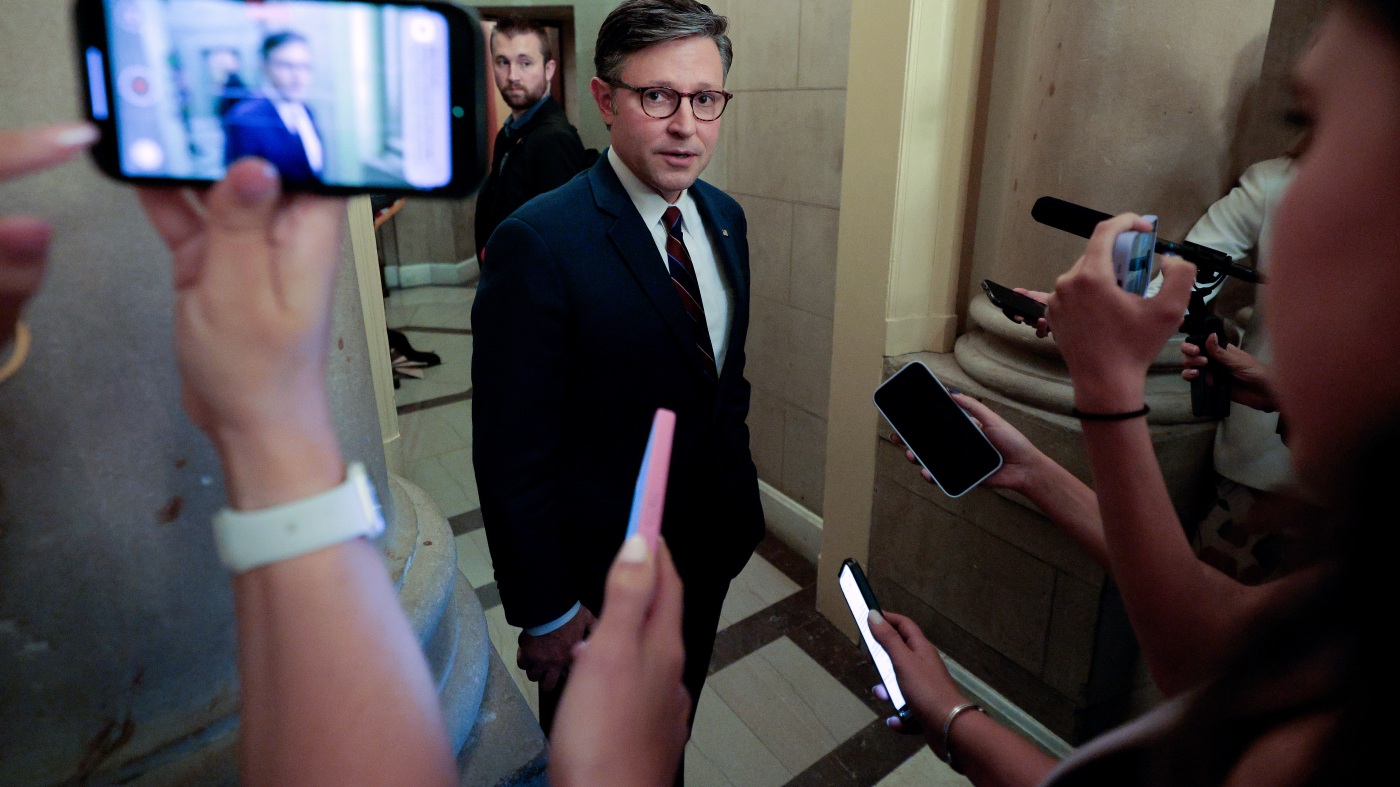Good morning. You are reading the Up First newsletter. Subscribe here to get it delivered to your inbox, and listen to the Up First podcast for all the news you need to start your day.
Senate Advances Trump’s Major Legislation
President Trump’s new bill has made it through the Senate with a tight 51-50 vote. Vice President Vance provided the decisive vote. The House is set to deliberate on the bill today, with Republican leaders aiming to have it on the president’s desk by the end of the week. The Congressional Budget Office estimates the bill will increase the U.S. budget deficit by $3.3 trillion by 2034. For more details on the bill, click here.

Speaker of the House Mike Johnson, R-La., speaks at a press conference at the U.S. Capitol on June 4. Kevin Dietsch/Getty Images
Challenges in the House
House Speaker Mike Johnson faces a crucial challenge as he needs to ensure no more than three members oppose the bill. Weather conditions have affected congressional attendance, with flight delays and cancellations. Deirdre Walsh from NPR reports that some conservatives are considering voting against the Senate’s more costly bill version. The Republican stance is that passing the bill is essential to prevent a tax increase due to expiring tax cuts from Trump’s first term. However, many Americans may not see a noticeable change in their paychecks.
Impact on Healthcare
Trump’s legislative proposal seeks to cut federal spending on Medicaid and ACA marketplaces by $930 billion over the next decade, as per the Congressional Budget Office. This figure exceeds the House’s May vote by $100 billion. If enacted, the bill would reverse several healthcare gains from the Biden and Obama administrations, potentially increasing the uninsured population by one-third. The bill proposes more frequent eligibility checks, making the process more cumbersome, especially for those with health challenges.
Restructuring Gun Regulations
The Trump administration is working on changes within the Bureau of Alcohol, Tobacco, Firearms, and Explosives. NPR’s Meg Anderson highlights regulatory alterations that may ease firearm restrictions, including extending background check validity to 60 days and allowing gun dealers to destroy records after 20 years. The Department of Justice also suggests reducing over 500 investigator roles, which could impact the ATF’s ability to trace crime-involved firearms. This move contrasts the administration’s tough-on-crime stance, according to former Burlington police chief Brandon del Pozo.
Reforming Air Traffic Control
After recent technical issues and staffing shortages, the Trump administration revisits air traffic control reforms. Past attempts to privatize U.S. air traffic control in 2017 were unsuccessful. The current approach includes significant investments in the FAA, with support for modernizing systems and enhancing hiring. Some critics suggest removing air traffic control from direct government oversight as a better solution. For more insights, click here.
- In 1996, Canada privatized its air travel system, expediting technology upgrades.
- Canada’s funding transition involved fees based on flight weight and distance instead of taxation.
- Critics note challenges, including a shortage of controllers and a downgraded safety rating.
- Privatization may affect smaller airports and pilots lacking major economic influence.
Three Updates to Know
- Waffle House removes its temporary egg surcharge as prices stabilize. For details, visit here.
- Lululemon is suing Costco over alleged design copying for its Kirkland Signature brand. More information can be found here.
- Paramount Global settles a lawsuit with Trump’s foundation, agreeing to a $16 million payment for his future presidential library and resolving issues from a 60 Minutes interview editing. Read more here.
This newsletter was edited by Suzanne Nuyen.
This article was originally written by www.npr.org







Be First to Comment